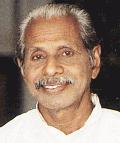Skip to main content
Victorian Age

- Victorian Period is named for Queen Victoria who reigned from 1837 - 1901
- The Romantic mode and concepts continued into this period though modified according to changing times.
- This age - notable for many changes - in the society.
- Many influential thinkers - responsible for these changes.
- John Stewart Mill - English Liberalism - cause of Individual Freedom.
- "Rugged Individualism" and "Laissez-faire" policy - catchwords of the era.
- The rise of Democracy, with the introduction of the Reform Bill, gave power to the Middle Class - Basis for parliamentary activities.
- Thomas Carlyle - preached the Sacredness of Labor and opposed democracy and preached the leadership of Hero.
- Revolutionary ideas in the field of science brought about radical changes int he attitudes of the people.
- Most influential - Charles Darwin - Theory of Evolution - eroded the very notion of divine creation of the universe - resulted in religious scepticism - a conflict between Faith and Doubt.
- Romantics regarded nature as a force that had the power to call "chasten" and "subdue" suffering humanity.
- "Nature" - capable of offering spiritual consolation.
- Wordsworth saw in nature a spiritual presence.
- All the Romantics shared this view in their own fashion.
- Victorians were conditioned by the Mechanistic Philosophy of Science and Nature was only the Objective World for them.
- An age of great material prosperity, 'A Century of Hope', but also an age of despair, questioning these so called "progress".
- "To strive, to seek, to find, and not yield".
- Victorian Age - dominant form of poetry was Elegy.
- We find among the Victorian poets the prediction to be serious, reflective and melancholic.







.jpg)
Comments
Post a Comment